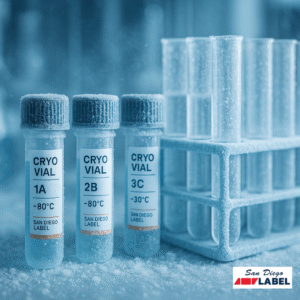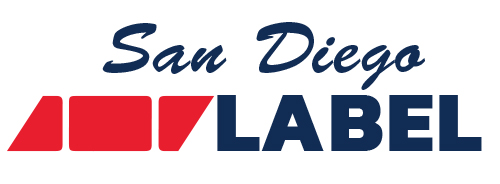
When labeling products for biotech, pharmaceutical, or laboratory use, durability under extreme conditions is essential. Cryogenic labels are engineered to perform where traditional substrates fail — in ultra-low temperatures, deep freezers, and even liquid nitrogen.
What Are Cryogenic Labels?
Cryogenic labels are specialty film substrates combined with adhesives designed to withstand storage at –80°C and below. Unlike paper or standard films, they remain intact and legible after repeated freezing and thawing cycles.
Why They Matter in Biotech and Pharma
-
Sample Integrity: Labels that fail can compromise research or compliance.
-
Adhesion in Extreme Cold: Cryogenic adhesives bond strongly to glass, plastic, and metal surfaces.
-
Legibility: High-contrast printing ensures barcodes and text remain scannable.
Best Practices for Cryogenic Labeling
-
Apply labels at room temperature for best adhesion.
-
Use thermal transfer printing for barcodes and variable data.
-
Pair with protective laminates if samples are handled frequently.
Common Applications
-
Biotech sample vials
-
Pharma test tubes and cryo boxes
-
Long-term freezer storage in research facilities
Conclusion
When temperatures drop, ordinary labels crack, peel, or fade. Cryogenic labels ensure that critical information stays put — protecting both your product and your research.
👉 Need sub-zero label performance? Contact San Diego Label to request cryogenic label samples.
